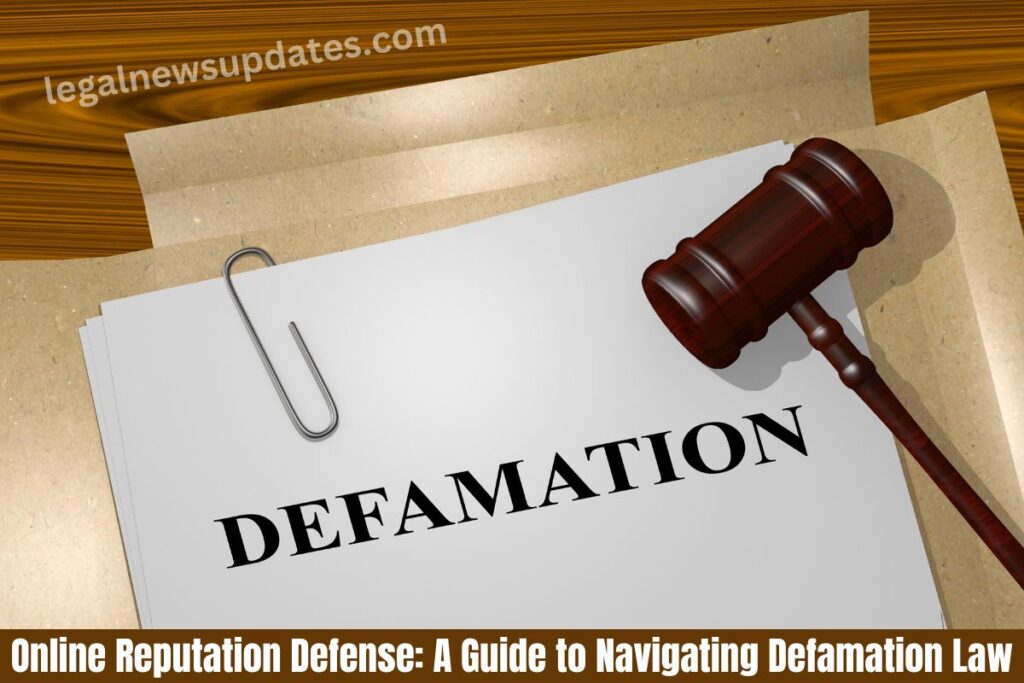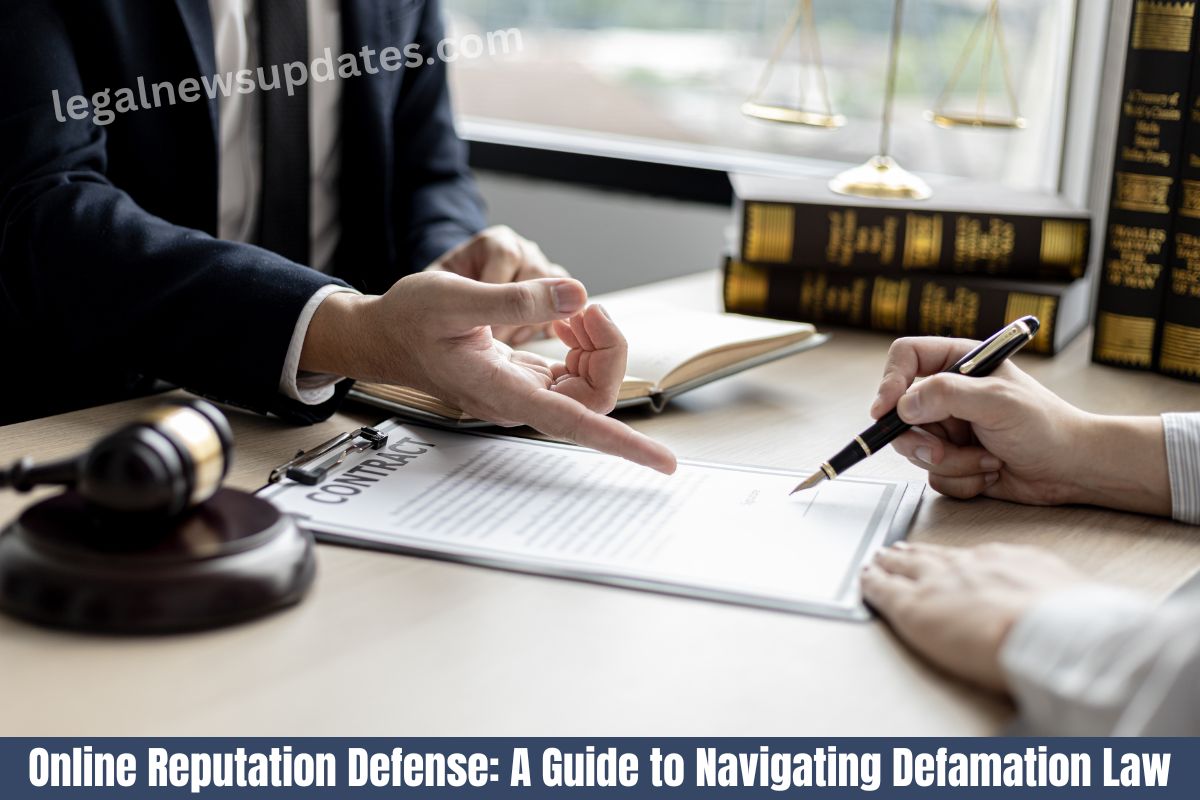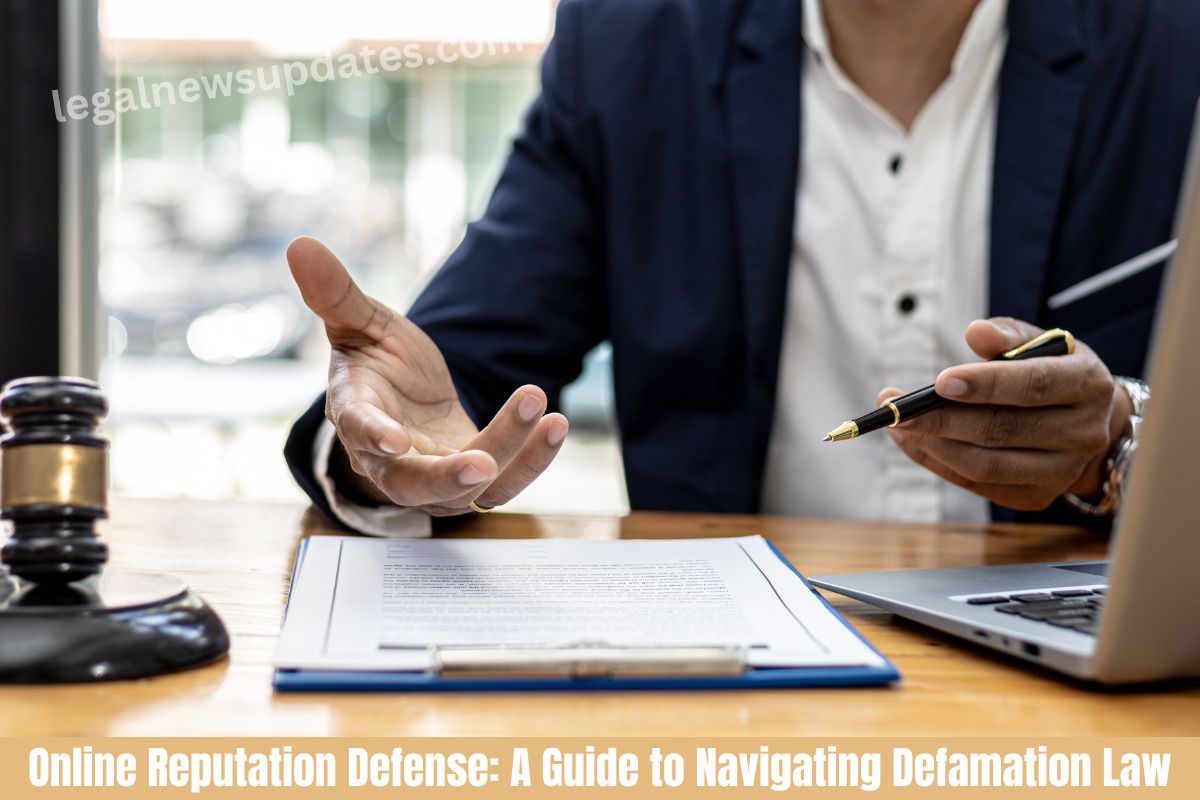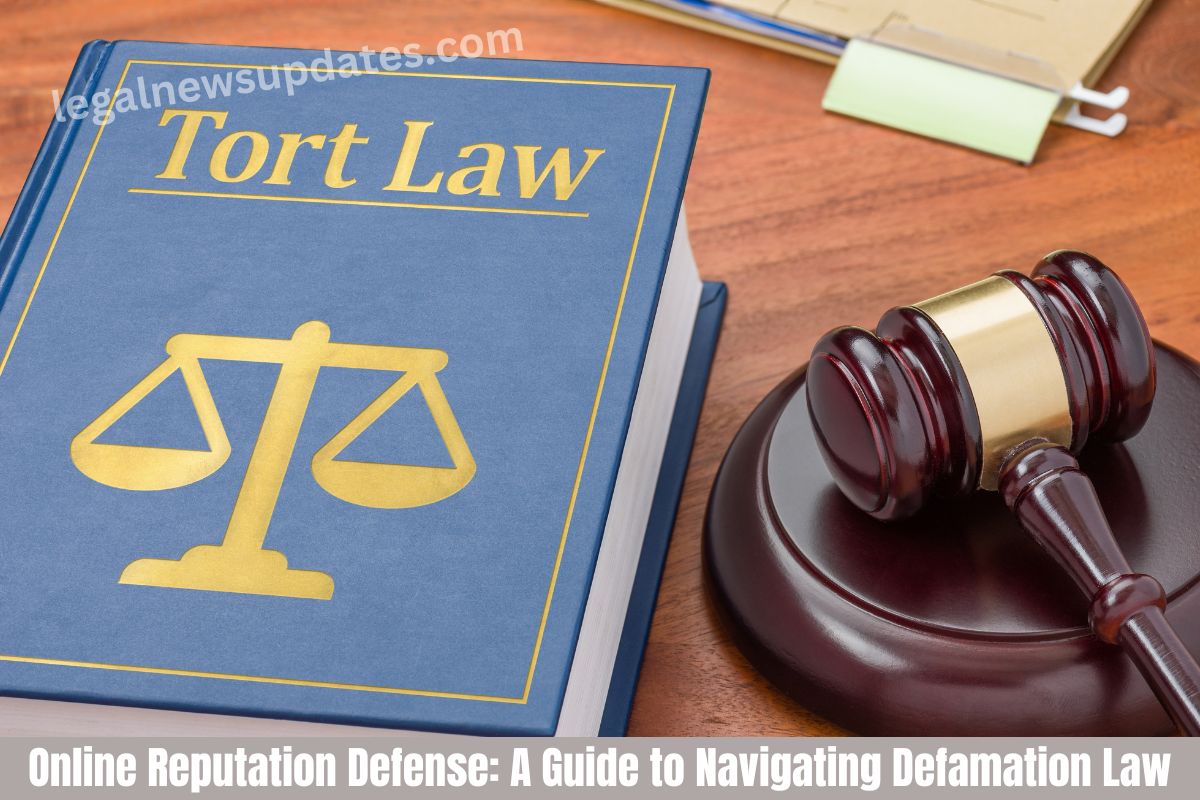Online Reputation Defense: A Guide to Navigating Defamation Law

xr:d:DAGB_yPi-q0:25,j:3316199646530991612,t:24041010
Introduction
Online Reputation Defense: A Guide to Navigating Defamation Law In today’s digital age, our reputations are increasingly defined by what appears about us online. From social media posts to online reviews, the internet can shape perceptions of individuals and businesses alike. However, this digital landscape also opens the door to potential harm through defamation. Defamation law aims to balance the protection of personal and professional reputations with the fundamental right to free speech. As we navigate our online lives, understanding the nuances of defamation law becomes crucial for anyone looking to protect their reputation in the vast, often wild expanse of the internet.
Understanding Defamation
Defamation is a legal term for any statement that unjustly harms someone’s reputation. It’s categorized into two types: libel, which refers to written defamation, and slander, which concerns spoken statements. The digital age, however, primarily grapples with defamation due to the nature of online content.
Critical Elements of Defamation Law
To prove defamation, several elements must be established:
- False Statement: The accusation must be demonstrably untrue. Truthful statements, no matter how damaging, are not considered defamation.
- Public Disclosure: The statement must be made public through any medium, digital or otherwise.
- Identification: The statement must refer to the individual or entity claiming defamation.
- Damage: There must be demonstrable harm to the reputation of the person or entity.
Understanding these elements is crucial for anyone navigating the complexities of defamation, particularly in the online sphere, where information spreads rapidly.

The Rise of Online Defamation: Online Reputation Defense: A Guide to Navigating Defamation Law
The internet has significantly altered the landscape of defamation. Online platforms allow for the quick spread of information—and misinformation—reaching a global audience with just a few clicks. This ease of dissemination has led to increased defamation incidents, where damaging statements can go viral, causing significant reputational harm before the truth comes to light.
Common Forms of Online Defamation
Online defamation can manifest in various forms, including:
- Social Media Posts: Quick, often emotional reactions can lead to defamatory statements being shared widely.
- Reviews and Comments: Negative reviews or website comments can contain false information, damaging reputations.
- Blogs and Articles: Written content that contains unfounded allegations can be particularly harmful.
Legal Framework for Online Defamation
Navigating defamation law in the context of online content presents unique challenges, especially when considering the global nature of the internet.
Overview of Defamation Laws as They Apply to Online Content
Most jurisdictions have laws that address defamation, though these laws were often conceived before the digital age. Adapting these laws to online defamation involves interpreting traditional legal principles in the context of modern technology, a process that can vary significantly between different legal systems.
Jurisdictional Challenges in Online Defamation Cases
One of the most complex aspects of online defamation is jurisdiction. Since the internet transcends geographic boundaries, determining which court can hear a defamation case involves considering where the defamatory statement was published, accessed, and caused harm.

Protecting Yourself from Online Defamation: Online Reputation Defense: A Guide to Navigating Defamation Law
In the face of potential online defamation, there are proactive measures you can take to protect your reputation.
Practical Steps to Protect Your Online Reputation
- Regular Monitoring: Keep an eye on what is being said about you or your business online. Tools like Google Alerts can notify you of new mentions.
- Engage Wisely: Respond to negative comments or reviews professionally and factually. Sometimes, addressing concerns can mitigate potential damage.
- Seek Removal: If defamatory content appears on a platform, request its removal based on its policies.
Monitoring and Responding to Online Defamation
Prompt action is vital. If you identify potentially defamatory content, document it immediately. Contact the individual or platform hosting the content to request a retraction or correction before pursuing legal action.
Navigating the Legal Process
When faced with online defamation, understanding your legal options and the steps to take is vital. While the initial focus should be on non-legal avenues, such as requesting content removal, there are instances where legal action becomes necessary.
Steps to Take if You’re the Victim of Online Defamation
- Documentation: Before anything else, document the defamatory statements. This includes taking screenshots, noting URLs, and recording dates and times.
- Legal Consultation: Consult with an attorney specializing in defamation law. They can offer guidance specific to your situation, including whether you have a strong case and the potential outcomes of legal action.
- Cease and Desist Letters: Often, a formal letter from an attorney demanding the removal of defamatory content and stopping further defamatory statements can be effective.
- Filing a Lawsuit: If the defamation continues and causes significant harm, filing a lawsuit may be the next step. Your attorney can advise on the merits of your case and the likelihood of success.
The Role of Attorneys in Defamation Cases
An attorney can navigate the complex legal landscape of defamation law, ensuring that your case is presented effectively. They understand the nuances of proving defamation and can guide you through the process, from gathering evidence to representing you in court.

Case Studies and Precedents: Online Reputation Defense: A Guide to Navigating Defamation Law
Examining notable online defamation cases can offer insights into the legal process and its outcomes.
Notable Online Defamation Cases
- Case Study 1: A business owner wins a significant settlement against a competitor who posted false reviews online. This case highlighted the impact of online reviews on a business’s reputation.
- Case Study 2: An individual successfully sues for defamation after being falsely accused of criminal activity on social media, demonstrating the personal harm that online statements can cause.
Lessons Learned and the Impact on Internet Speech
These cases illustrate the balance courts must strike between protecting reputation and upholding free speech. They also underscore the importance of factual accuracy in online postings and the potential consequences of spreading false information.
The Future of Online Defamation Law
As the digital landscape continues to evolve, so will the laws governing online defamation. Anticipating these changes can help individuals and businesses better prepare for potential reputational challenges.
Emerging Trends and Potential Legal Reforms
- Globalization of Defamation Law: As the internet blurs national boundaries, there may be moves toward more standardized global defamation laws.
- Technological Solutions: Advances in technology could lead to more sophisticated methods for identifying and combatting online defamation, such as AI-driven content moderation.
- Strengthening of Anonymity Protections: The tension between anonymity and online accountability might lead to legal reforms that seek to protect free speech and reputation.
Conclusion: Online Reputation Defense: A Guide to Navigating Defamation Law
In the digital age, protecting online reputation has become a critical concern for individuals and businesses. Defamation law offers a framework for addressing harmful falsehoods, but navigating this area requires a nuanced understanding of legal principles and a proactive approach to reputation management. By staying informed about your rights, taking preventative measures, and seeking legal counsel when necessary, you can effectively safeguard your reputation against online defamation.
As we look toward the future, ongoing technological and law developments will undoubtedly shape online reputation management’s landscape. Staying ahead of these changes and understanding their implications will be essential to protect your reputation in an increasingly digital world effectively.







